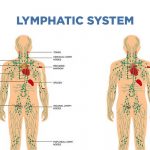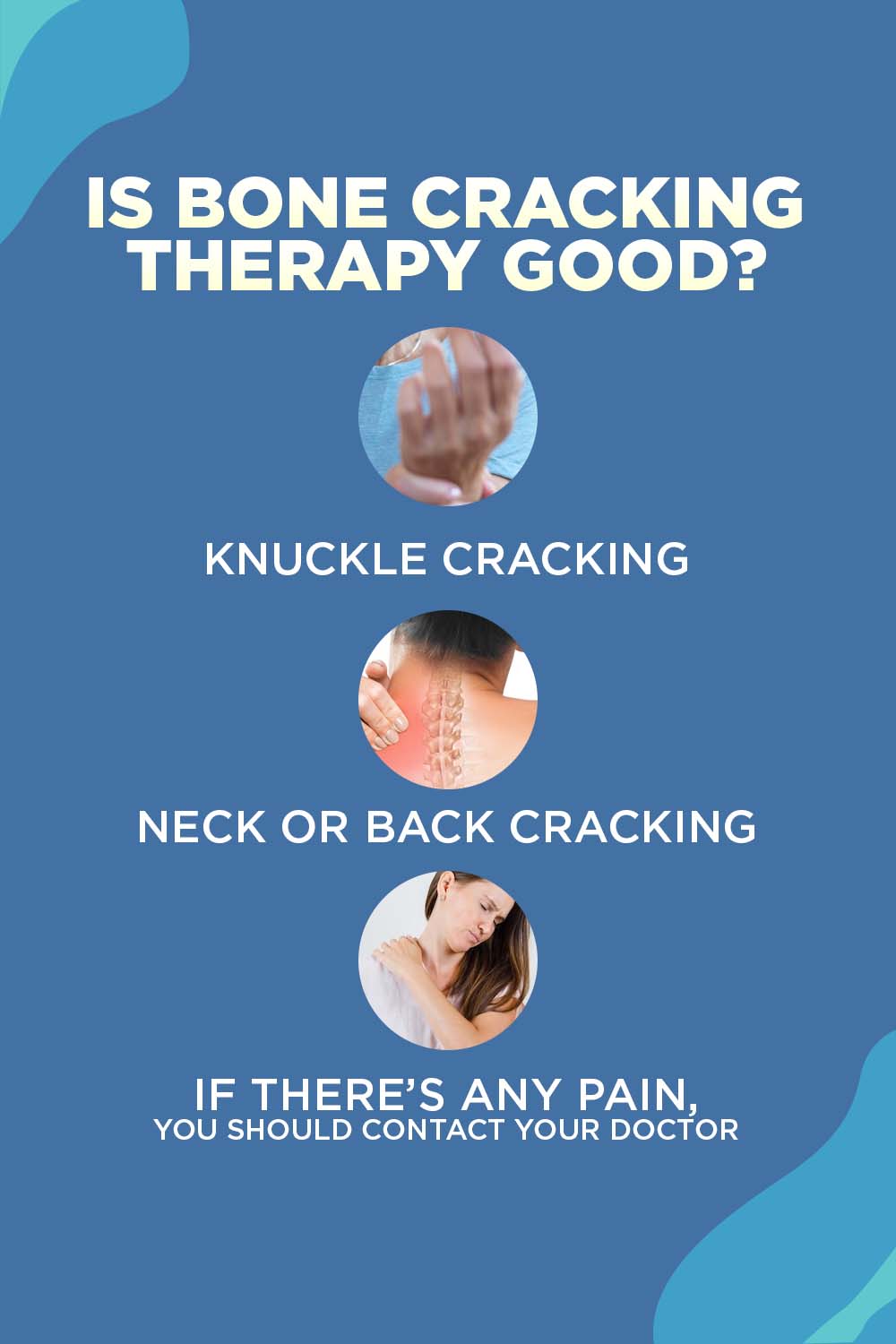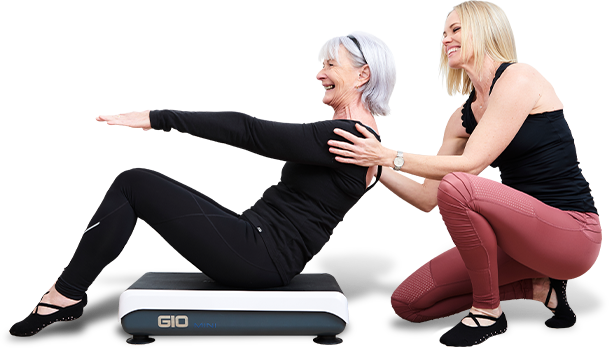Bone Cracking Doctor: Why is it Good for You?

An adjustment in chiropractic is a form of treatment that is administered by a qualified chiropractor. Your bone cracking doctor will apply pressure to the joints in your body in order to manipulate them and realign your spine.
This will help to minimize any pain or discomfort you may be experiencing. Adjustments provided by a bone cracking doctor are intended to supplement the conventional medical therapy you are receiving. After getting an adjustment at the chiropractor, you might feel a little sore.
An adjustment in chiropractic is a therapeutic therapy in which a qualified bone cracking doctor uses their hands or special devices to move joints in a patient’s body. Adjustments can be performed on both adults and children. Spinal manipulation and joint manipulation are also names that can be used to refer to this treatment.
An adjustment by a chiropractor can assist in the reduction of discomfort, as well as the correction of your body’s alignment and how it physically operates. Adjustments performed by bone cracking doctors provide a treatment that works in conjunction with the conventional medical care patients already get.
Is chiropractic cracking good?
There are numerous myths concerning back-cracking. Is it healthy for you? Are you genuinely causing joint pain? That pop or crack is merely gas escaping from the joint, not the joint itself. A chiropractic adjustment restores motion to a joint that has become stuck to the point of interfering with nerve transmission.
When we crack our back, we relieve pressure on our nerves, allowing for all of the wonderful health benefits that come with releasing that tension, such as less headaches and allergy symptoms, as well as better breathing. If you find yourself frequently popping or cracking your back, it’s most likely due to a trapped area that has to be handled by your bone cracking doctor.
Is bone cracking therapy good?
-
Knuckle cracking
-
Neck or back cracking
-
If there’s any pain, you should contact your doctor
For decades, bone cracking doctors have argued why joints generate that “popping” sound. The dominant theory used to be that the noise was caused by a bubble bursting in the synovial fluid that surrounds the joints, but new study reveals that the noise is caused by the formation of a void, or negative space, in the fluid.
Regardless of how the sound is produced, research has shown that cracking your knuckles does not result in the later development of osteoarthritis, a condition caused by joint wear and tear. Contrary to popular belief, knuckle crackers do not appear to have a greater rate of arthritis than non-knuckle crackers.
Some data suggests that knuckle cracking may cause hand swelling and decreased grip strength, however this evidence is weak, and other studies have not duplicated similar findings. Such cracking is unlikely to cause long-term damage.
“A few clinical investigations on knuckle cracking in the hand have been conducted,” says Rachel Lefebvre, MD, an orthopedic surgeon at Keck Medicine of USC and assistant professor of clinical orthopedic surgery at USC’s Keck School of Medicine. “Based on what we know so far, there appears to be no link between knuckle cracking and joint injury or arthritis.”
What about cracking in the neck and back? We may experience neck or back pain as a result of our sedentary lifestyles of sitting at our computers all day and our proclivity for gazing down at our phones, which causes “text neck.” Somehow, the sense of relief you receive after a good crack appears to improve it (although some research has shown that this may be a psychological placebo effect).
While it’s usually alright to crack your neck or back on occasion, don’t have a friend do it for you because they may apply too much pressure and cause harm. When it comes to your spine, you want to be cautious, so only get your back or neck adjusted by a registered bone cracking doctor or physical therapist.
Even yet, there has been evidence indicating that neck manipulations may cause stroke in rare situations, so make sure you tell your practitioner if you are at a higher risk of stroke. Also, if you have any concerns about the hazards of such operations, speak with your health care physician.
“The research is very unclear as to whether or not cracking your neck might cause harm,” says Raymond J. Hah, MD, an orthopedic surgeon at the USC Spine Center of Keck Medicine and an assistant professor of clinical orthopedic surgery at the Keck School. “There is no evidence that cracking your neck or back increases your chances of developing disc degeneration.”
Other than cracking, other home cures for neck and back pain may be beneficial if you don’t want to seek the professional route. Try massage or a back rub, as well as applying heat or cold. Even better, remember to get up and stretch every now and then to avoid the aches and pains that come with prolonged sitting. Exercise can also help people who have joint difficulties, so stay active.
Even though cracking one’s neck, back, or knuckles is probably not harmful, there is one notable exception: if it causes discomfort. If this is the case, it may be due to a problem with the structure of the joint or the areas around it.
For example, the cartilage or the ligaments may be ripped or injured. If you already have arthritis or another condition, such as tendonitis, this could potentially be the reason for the pain that you are experiencing when you crack. If you feel uneasy when you break a joint, you should discuss the matter with your primary care physician so that you can address the underlying issue.
You can also try a vibration plate for osteoporosis, if there’s any. Scientists actively interested in space exploration were the ones who first invented vibration therapy. According to the findings of the study, astronauts who spent months in space stations experienced a monthly bone loss of between one and two percent. They were found to be able to restore bone loss by standing on a lightly vibrating plate for ten to twenty minutes on a daily basis. This discovery was made.
Do chiropractors crack knuckles?
Self-knuckle cracking, also known as cracking one’s toes or neck, is a pretty basic movement that simply results in the production of a popping sound and the experience of released pressure. It is very enjoyable to do, but there are no additional benefits to doing it besides making your mother feel uncomfortable.
When a patient is undergoing a chiropractic adjustment from a doctor who practices bone cracking, very particular motions and pressures are applied to the joint in order to maneuver it into the ideal position for proper alignment.
During an adjustment, your bones and joints may “crack” as they move into the correct position. This is perfectly normal. However, that is just a side effect of the medication, and by itself it does not bring any sort of advantage to the patient.
Are chiropractors good for you?
A chiropractic adjustment has various advantages, including:
- Migraines and neck-related headaches are reduced.
- Enhances your posture.
- Reduces discomfort and increased joint range of motion in the spine and other joints.
- Relieves the symptoms of chronic illnesses such as osteoarthritis.
- Minor neck or spine injuries, particularly whiplash, are treated.
Sources:
https://my.clevelandclinic.org/health/treatments/21033-chiropractic-adjustment#:~:text=Who%20is%20a%20chiropractor%3F,or%20joint%20pain%20or%20dysfunction.
https://www.abilitychiro.com/what-happens-when-a-chiropractor-cracks-my-back/
https://www.keckmedicine.org/blog/is-cracking-your-neck-back-or-knuckles-good-for-you/
https://www.thejoint.com/south-carolina/myrtle-beach/sayebrook-08017/189303-cracking-your-knuckles-harm-help-neither#:~:text=When%20having%20a%20chiropractic%20adjustment,align%20into%20the%20proper%20position.








